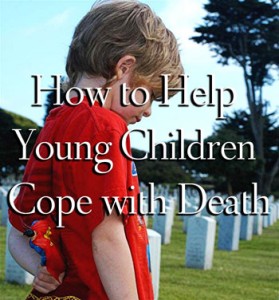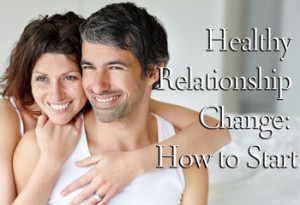
Adults who were raised by a critical parent may struggle in their romantic relationships in a number of ways.
Here are a few common scenarios:
- Jeff bristles when his wife reminds him to slow down when he’s driving. He becomes angry, then begins to criticize her in defense.
- Marie feels anxious about Jess pointing out that the picture she just hung is still a bit crooked. She feels inadequate and fears that her wife will never be pleased by her. She rarely speaks up, though, for afraid of upsetting her partner.
- Lucy admonishes her husband that he doesn’t pick up after himself. Mark is frustrated by what he feels are Lucy’s exacting demands. He doesn’t understand why she becomes so angry when things appear out of order.
Each of these stories describes some common issues couples can face. What they have in common, however, is that one of the partners was raised by a critical parent. As adults, these folks can become easily defensive, feel inadequate or possibly develop an intense need for perfection.
In this post we’ll discuss the complex ways in which being raised by a critical parent can impact adult relationships. We’ll also help you with how to communicate important issues while also taking into account your partner’s sensitivities.
The Impact of Critical Parents
Research points to studies that parents who are critical, harsh and overly authoritarian can produce children who are challenged with anxiety. Adults who were raised by a critical parent may have a harder time adapting to adversity later in life.
Punitive parenting can train a child’s young brain to overemphasize mistakes. When a child is chastised for making a mistake, the brain learns to pull back so that further mistakes are avoided. Over time, and with continued parental criticism, children learn to internalize that parental feedback and then criticism can become a trigger for anxiety.
Other impacts can include a feeling of never being good enough or that’s it’s difficult to measure up to social or work expectations.
Children are closely attached, or bonded, with their parents; therefore, the parents’ influence looms large. Children want to please their parents, and when their struggles meet with criticism it’s hard for kids to not take the parents’ comments as deeply personal.
In the three hypothetical examples above, each adult’s response is rooted in anxiety: One defends to avoid feelings of criticism, another’s fears of inadequacy and making mistakes comes into play and the third finds comfort in her intense needs for order.
Two Types of Critical Parents
Many parents have good intentions in their style of guiding their children. They want the best for their kids, and they feel they are helping their child by giving them lots of corrective feedback. However, if the criticism is received as even slightly blaming, the child can become anxious about making mistakes and then about taking risks.
What’s important is that parents who are correcting or guiding a child also provide a heavy dose of encouragement and positive feedback.
Other critical parents are controlling and can be emotionally abusive. This more overt criticism leaves its mark as well. There is little or no praise for the child, and the parent’s hostility can be as emotionally detrimental as physical abuse.
Raised by a Critical Parent: Understanding Your Adult Self
In counseling, we help couples understand how their childhood can be influencing their challenges in their relationships. However, the intention is not to blame parents. That’s rarely helpful.
Rather, the goal is to gain a useful understanding of yourself. Human behavior, while at times can seem illogical, often can be explained. What we learn as children can have a powerful impact. However, as adults, we have the ability to learn about our inner world and to make positive changes.
We can learn how we’re “wired” and to change how we react to situations. Our partner can learn to understand us, too, and together you can be a powerful team to help each other become happier and healthier adults.
Working with our partner, we can build a new understanding of having been raised by a critical parent and develop ways to communicate that avoid triggering our partner to feel criticized.
Writes Dr. Sue Johnson, the creator of Emotionally Focused Therapy, “We never like to hear that something is ‘wrong’ with us, or that something needs changing, especially if this message is coming from the loved one we most depend on.”
Each of us can have what Dr. Johnson calls “raw spots.” She notes that these can be a hypersensitivity from the past in which our needs were repeatedly neglected, ignored or dismissed. “These sensitivities frequently arise from wounding relationships with significant people in our past, especially parents, who give us our basic template for loving relationships.”
Sharing Our Raw Spots with Our Partner
If our partner doesn’t know or understand our unique sensitivities, then they can’t respond to us in ways we truly need. However, this journey can be indeed scary.
Dr. Johnson notes in her book for couples, “Hold Me Tight: Seven Conversations for a Lifetime of Love,” that “We are naturally reluctant to confront our vulnerabilities. We live in a society that says we’re supposed to be strong, to be invulnerable. Our inclination is to ignore or deny our frailty.”
For the other partner, there’s a challenge as well. “We are unsure what to do or feel, especially if we have no template for how to respond effectively.” She adds that as parents, we quickly respond to a child’s expression of pain, but may not know how to comfort or connect with our partner when they are struggling.
Understanding the Deeper Fears
The first important step lies with the person raised by a critical parent to work toward understanding the impact on them now and in this current relationship. Concerns can include:
- How am I most easily upset when my partner offers suggestions or feedback?
- Do I become critical of my partner and others as a way of keeping myself safe and distant?
- Can I allow my partner to be there for me when I need emotional support?
- Do I tend to interpret many comments from my partner as critical?
As couples recognize the challenges they’re facing, they can work toward sharing these deeper feelings. Often in counseling sessions, when these fundamental raw spots are revealed, the partner is often surprised. “I didn’t how you truly felt and why you can be so sensitive. It makes sense to me now!”
OK, But What if I Need to Tell My Sensitive Partner How I Feel?
First, it’s important to note: It’s far easier to criticize than to be vulnerable and express our deeper fears and needs. In other words, it’s more common for us to tell our partner what needs to be changed by them than to help them understand why we need a different response or way of connecting.
John Gottman, Ph.D., studied couples who were successful in their long-term relationships. He found that they did one powerful thing: They transformed their criticisms into wishes. Rather than pointing out a fault in the partner, the conversation begins with expressing a need or desire.
Rather than taking a “you” approach — as in “You never take out the trash without my asking,” a partner can say, “It’s really helpful when I know the chores have been done. I feel like things are running smoothly and I’m less stressed.”
Or: “I get nervous when we drive fast. It reminds me of the accident I had years ago. It’s hard for me to let go of that, and it’s really helpful when we go a bit slower.”
How to Avoid Being a Critical Parent to Your Kids
We like to think that we aren’t critical parents ourselves. However, we might not always be aware of how we come across to our children.
In his wonderful book, “Parenting from the Inside Out,” well-known psychiatrist Daniel Siegel, M.D., helps parents understand how they may parent their kids as an unconscious reflection of how they were parented.
So, it’s not all that unusual for parents to replicate the style with which they were raised. Increasing your awareness can help you change the conversations with your kids. On the other hand, many parents recognize how their parents’ styles impacted them and may make a conscious effort to treat their children quite differently.
We know, however, that the same types of conversations you learn to have with your partner in Emotionally Focused Therapy can be applied to talking with your kids. As you read through the blogs recommended below, you can apply the same principles to helping your kids understand your concerns.
For further reading on this topic, we suggest our posts Communication in Relationships: Learn to Be Deeply Understood, Emotional Communication for Couples: Getting to What Truly Matters, and the hazards of not bringing up to your partner issues that are bothering you –Avoiding Relationship Conflict Isn’t As Safe As You Think .
 what makes others comfortable and how much physical contact you welcome from others. Some of us are “huggers” and easily embrace those close to us. Some people are less comfortable with physical contact.
what makes others comfortable and how much physical contact you welcome from others. Some of us are “huggers” and easily embrace those close to us. Some people are less comfortable with physical contact. Spouses and partners can feel hurt or less emotionally secure when it seems the other is siding with or giving in to their own family’s influence.
Spouses and partners can feel hurt or less emotionally secure when it seems the other is siding with or giving in to their own family’s influence. problems emerge. Discuss, as well, how you’ll stay close and connected to your partner amidst the many family events. How can you make some time for each other during the visits? What does each of you need from each other to handle any challenges?
problems emerge. Discuss, as well, how you’ll stay close and connected to your partner amidst the many family events. How can you make some time for each other during the visits? What does each of you need from each other to handle any challenges? you had not anticipated. You and your partner may find increased arguing, your new marriage is strained and you’ve both started to feel increasingly hopeless.
you had not anticipated. You and your partner may find increased arguing, your new marriage is strained and you’ve both started to feel increasingly hopeless.
 On December 20th, a childhood friend of mine was killed in an accident. Her nine year-old daughter Sarah was orphaned just before Christmas. A tragic and sudden death leaves everyone reeling. Knowing how to help young children cope with death can be difficult given that everyone else is also in crisis. The adults have to function, and the child has to be cared for. Most adults don’t know how to talk to children about death, and don’t know what is and what isn’t normal in the grief process. The subject of children and grief is vast, but this is what you can expect with young children ages 0-9, and how you can help them in their grieving.
On December 20th, a childhood friend of mine was killed in an accident. Her nine year-old daughter Sarah was orphaned just before Christmas. A tragic and sudden death leaves everyone reeling. Knowing how to help young children cope with death can be difficult given that everyone else is also in crisis. The adults have to function, and the child has to be cared for. Most adults don’t know how to talk to children about death, and don’t know what is and what isn’t normal in the grief process. The subject of children and grief is vast, but this is what you can expect with young children ages 0-9, and how you can help them in their grieving. Simple Steps to Create Healthy Relationship Change
Simple Steps to Create Healthy Relationship Change